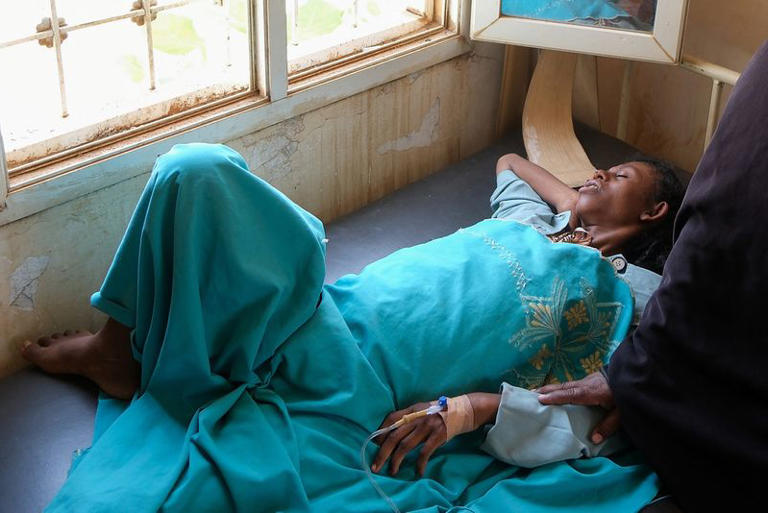Amid the ongoing war in Sudan for nearly thirty months, the health sector is facing an unprecedented crisis with a widespread outbreak of diseases such as dengue fever, cholera, and malaria.
The Sudanese Minister of Health, Haitham Mohammed Ibrahim, announced that tens of thousands of citizens have contracted these diseases, noting that the officially recorded numbers do not reflect the true scale of the outbreak, as 80% of cases do not reach hospitals due to their mildness or lack of resources.
The seasonal rains have exacerbated the situation, leaving pools of stagnant water that have become an ideal breeding ground for disease-carrying mosquitoes, especially amid the destruction of water and electricity networks in the capital, Khartoum.
In Omdurman Hospital, exhausted patients lie under mosquito nets in overcrowded wards, amid a severe shortage of essential medicines such as paracetamol, which is sold on the black market at prices exceeding the official price by five times.
The minister pointed out that the pesticide spraying systems have been damaged by the war, leading to increased mosquito density and the spread of diseases.
Although vaccination and water treatment efforts have somewhat contributed to controlling the cholera outbreak in Khartoum, the Darfur region has witnessed a peak in disease spread, with the World Health Organization recording over 12,700 cases in four months, most of them in the town of Tola, which has become a refuge for thousands of displaced people.
Amid declining international support, the minister clarified that the cost of combating these simultaneous epidemics amounts to about $39 million, while Sudan currently receives less than one-third of the funding needed for the healthcare sector, which heavily relies on foreign aid.
This health crisis reflects the hidden costs of conflict and highlights the urgent need for immediate international intervention to rehabilitate the health system and curb the spread of diseases.
